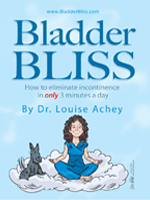Q: I get a flu shot every year. Don’t I need a pneumonia shot, too?
What many people call the “pneumonia shot” is actually a vaccine that protects you from being infected by a particular type of bacteria instead of against a particular disease.
This bacteria has several names: pneumococcus, Streptococcus pneumonia and S. pneumoniae. The vaccine that protects against it is called pneumococcal vaccine, which is designed to protect you against life-threatening infections of the lungs (pneumonia), the blood and the brain (meningitis).
Amazingly, pneumococcus bacteria doesn’t ALWAYS cause serious infection. It’s not unusual to find it living in our nose or throat from time to time without causing any signs or symptoms of infection. Having bacteria living on our skin or inside our bodies without causing an infection is called colonization. The Centers for Disease Control (CDC) based in Atlanta estimates that up to 10% of all Americans are colonized with pneumococcus at any one time and most of us have been colonized with it at some point during the past year.
The most common infection caused by pneumococcus is a bacterial ear infection in children called otitis media. Before a vaccine became available in 1997, pneumococcus was responsible for 5 million cases of otitis media in children every year.
S. pneumoniae got its name from its ability to cause pneumonia, the most deadly complication of contracting influenza or “the flu”. Between 100,000 and 135,000 adults each year are hospitalized with life-threatening pneumonia caused by pneumococcal bacteria.
Other serious infections caused by pneumococcal infection include a blood infection called bacteremia and meningitis, infection of the lining of the brain. According to the CDC this bacteria is responsible for 1 out of every 5 cases of meningitis in the United States and is the most common cause of bacterial meningitis in children under 5 years of age.
Meningitis from infection with S. pneumonia is very difficult to treat with antibiotics. 40% of adults over the age of 65 who contract pneumococcal meningitis will die and those who survive are often left with permanent damage to their brain and nervous system.
The CDC’s Active Bacterial Core Surveillance System documented 41,000 cases of serious pneumococcal disease with 4,900 deaths during 2006, and consider it one of the most preventable causes of death in the United States.
The populations at greatest risk for serious disease are children who are younger than 2 years old and adults 65 years old and older. At this time there are 2 different pneumococcal vaccines used in the United States, one for each of these two age groups.
Most adults will need only 1 shot in order to achieve lifetime immunity, although in certain medical conditions a second shot may be recommended.
You SHOULD get vaccinated with pneumococcal vaccine IF:
1. You are over 65 years old and have never had the vaccine.
2. You have had one vaccination but you were not yet 65 years old at the time AND it has been at least 5 years since your first vaccination.
3. You are not yet 65 years old but have a medical condition that puts you at a higher risk of getting a serious infection. A medical condition that increases your risk would include cigarette smoking, diabetes, asthma, heart or lung disease, kidney or liver disease, or an impaired immune system including HIV infection or AIDS, cancer, or an organ transplant. Additional conditions that have been linked to serious disease are having a cochlear implant to treat severe hearing loss or having fluid leaking from your brain.
4. You are not yet 65 years old but have a medical condition that puts you at a higher risk of getting a serious infection AND it has been at least 5 years since your first vaccination.
Unlike influenza vaccine, with just one shot your pneumococcal vaccination should last a lifetime.
Leave a Comment
December 8th, 2012. Filed Under:
Immunization,
Influenza.
Tags:
attenuated,
CDC,
Centers for Disease Control and Prevention,
FDA,
Flumist,
Food and Drug Administration,
inactivated vaccine,
reactogenicity,
swine flu,
thimerosol,
vaccination pledgeQ: My husband doesn’t get a flu vaccine because he swears, “it gives me the flu”. Can the flu vaccine actually give you the flu?
My husband believes this, too. His memory of “getting the flu from the flu vaccine” is from getting the “swine flu” vaccine back in 1976. Because he remembers feeling sick soon after his immunization shot, he has avoided getting vaccinated for influenza ever since.
My very first flu shot was also from the swine flu vaccine in 1976, and like my husband, I vividly remember having muscle aches, headache and fever afterward. Like him, I avoided getting a flu shot for years, until in 1990, influenza put me flat on my back in bed for 2 weeks. After that, I started getting the flu shot every year, and I haven’t been sick like that since.
There are two types of influenza vaccine available in the United States: inactivated vaccine and live attenuated vaccine. The most common type is the inactivated flu vaccine, which is injected. It’s not alive, so it cannot infect you. When injected, the dead virus triggers your immune system to make antibodies against it.
The live vaccine works by reproducing itself and multiplying until your immune system sits up and notices, then makes antibodies against it. This is just like when you are infected with it, but the live virus has been changed (attenuated) so that it doesn’t cause any disease symptoms.
Flumist® is a live attenuated vaccine made of influenza virus that has been genetically modified to prevent it from reproducing in the lungs. It only replicates in the nose, mouth and upper throat. First introduced in 2003, it is approved only for people between the ages of 2 and 49.
The main types of adverse reactions to vaccines are local, systemic and allergic. The most common type of reaction is local, the area right around the spot where you received the injection. Redness, tenderness and swelling are the most common types of local reaction, and occur in half of all vaccinations.
Allergic reactions are rare, and are not always from the actual organism. Allergic symptoms can be triggered by cell culture material such as eggs, stabilizing compounds or by the preservative, thimerosol.
Systemic reactions to ANY vaccination, not just influenza, can give us fever, malaise, muscle aches, nausea, or headache, with malaise and headache the most common ones reported. Because these reactions are similar to symptoms of common viral illnesses, it’s easy to confuse these vaccine side effects with a viral illness.
Another reason we can get confused is how we refer to most viral illnesses as either having “a cold” or “the flu”. We say, “I’ve got the flu” whenever we suffer from muscle aches with headache or fever. Or we’ll say, “I have stomach flu” to describe having nausea or diarrhea. We call a lot of illnesses “the flu”, but infection with influenza virus is very rare outside of the winter months.
As the United States learned the hard way during the 1976 swine flu debacle, it’s important to be sure that each new influenza vaccine is not just effective, but safe. The Food and Drug Administration (FDA) and Center for Disease Control and Prevention (CDC) choose which strains of influenza to use for the upcoming flu season in late February to allow enough time to do that. They need time for the drug companies to be able to grow the vaccine and then for clinical trials to measure each formulation for immunogenic response, called “immunogenicity”, and its ability to cause adverse reactions, also called “reactogenicity” before approving it for use.
In 2010, clinical trials for 2 adult vaccines against influenza in Western Australia found that although each formulation created adequate immunity, one vaccine had significantly more muscle aches and fever reported with it than the other one. The one with the greater “reactogenicity” was not approved for use in children.
Influenza causes over 36,000 more deaths every year in the US, with 90% occurring in Americans 65 years and older. When offered a flu shot every fall, my husband has always said, “I’ll take my chances.” Before this year, I’ve let him be. But now that my beloved is 63, I’m going to ask him to reconsider.
This year, I’ve decided to take the CDC Flu Vaccination Pledge: “I have already received my flu vaccine but will encourage my friends and family including my dear husband to do so, for the 2012-2013 season.”
It’s not too late to vaccinate!
Leave a Comment



